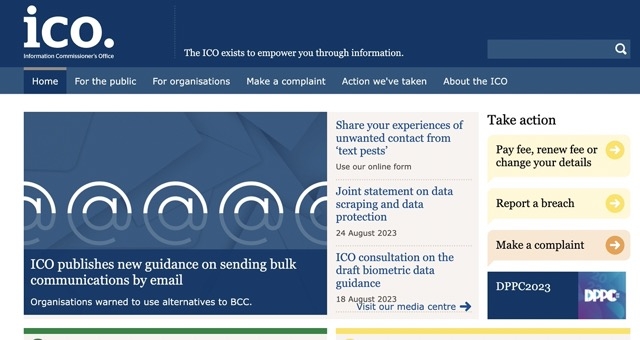The Information Commissioner’s Office (ICO) - the body which enforces data protection standards - has warned firms to use alternatives to the blind carbon copy (BCC) email function when sending emails following a number of business data blunders.
A number of businesses have been found to have inadvertently shared personal information when using the bcc function.
The ICO has published new guidance to help organisations understand the law and good practice on protecting personal information when sending bulk emails.
Earlier this month the ICO reprimanded two Northern Irish organisations for disclosing people’s information inappropriately via email and in March the ICO issued a reprimand to NHS Highland for a “serious breach of trust” after a data breach involving those likely to be accessing HIV services.
According to ICO data, failure to use BCC correctly is consistently within the top 10 non-cyber breaches, with nearly a thousand cases reported since 2019.
The education sector is the biggest offender for BCC breaches, with health in second, then local government, retail and the charity sector also in the top five.
Under data protection law, organisations must have appropriate technical and organisational measures in place to ensure personal information is kept safe, the ICO said.
Organisations that use and share large amounts of data, including sensitive personal information, should consider using other secure means to send communications, such as bulk email services, so information is not shared with people by mistake, the ICO suggested.
Organisations should also consider having appropriate policies in place and training for staff in relation to email communications.
Mihaela Jembei, ICO director of regulatory cyber, said: "Failure to use BCC correctly in emails is one of the top data breaches reported to us every year – and these breaches can cause real harm, especially where sensitive personal information is involved.
“While BCC can be a useful function, it's not enough on its own to properly protect people's personal information. We’re asking organisations to assess the nature of the information and the potential security risks when deciding on the best method to communicate with staff or customers. If organisations are sending any sensitive personal information electronically, they should use alternatives to BCC, such as bulk email services, mail merge, or secure data transfer services.”
ICO advice on email best practices email and security guidance.

